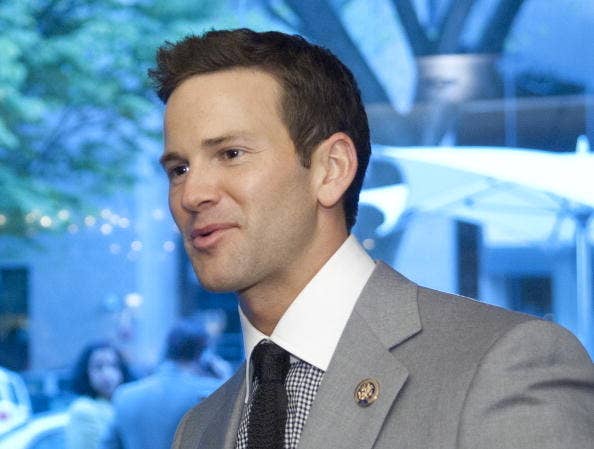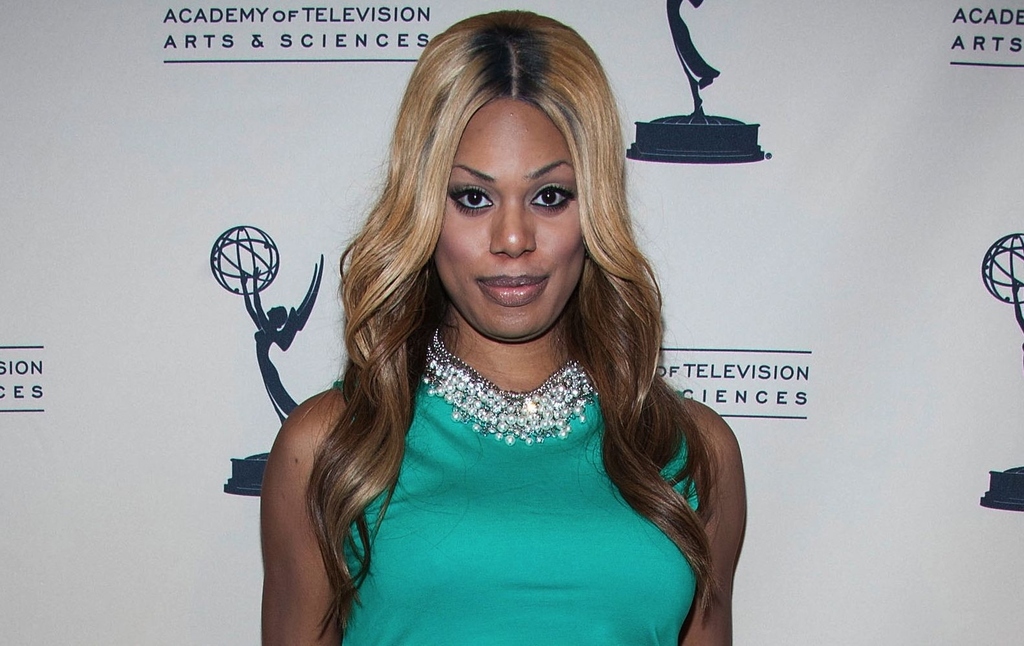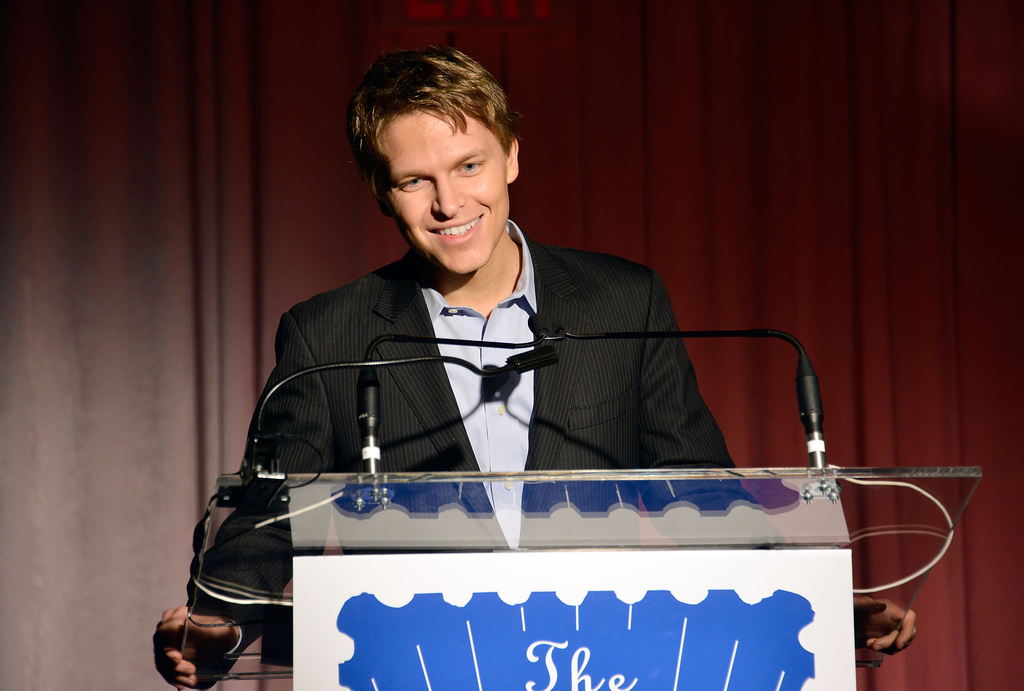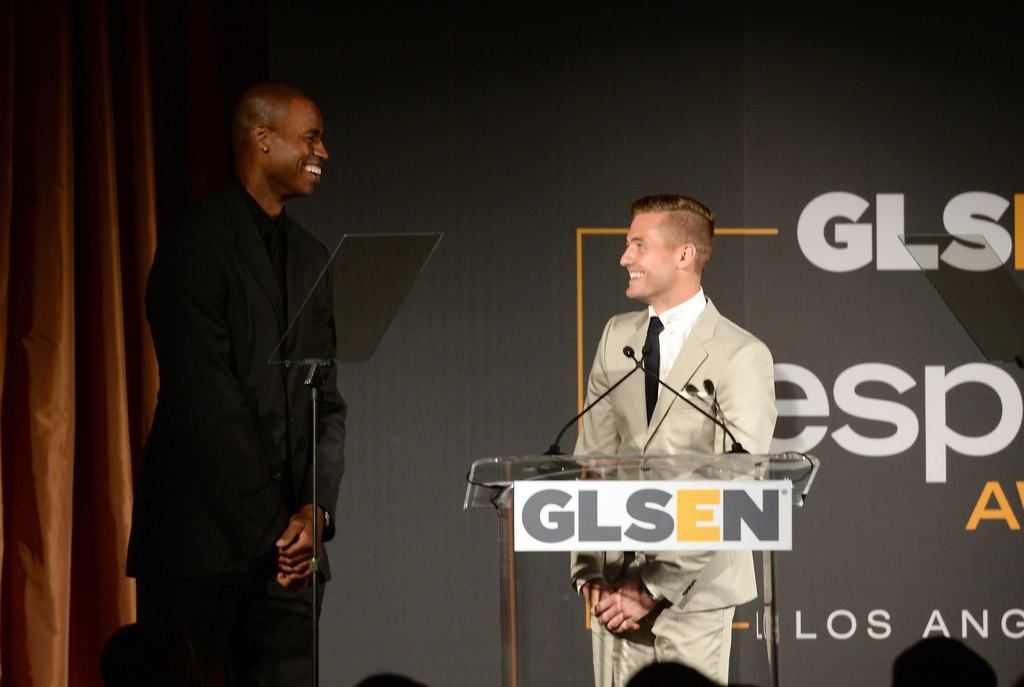
Kate Aurthur: Chris! I thought last year was the gayest year in American history — a year so gay even the Supreme Court got on board. Yet we're only five days into 2014 and the journalist Itay Hod has engaged in some old-school outing of the Republican Congressman Aaron Schock on Facebook that was quickly picked up on Queerty and elsewhere. More on that later, though, because I'm sure you have some thoughts about it.
Let's go back to last year, which was bookended by two big celebrity coming-outs: We started 2013 with Jodie Foster's beautifully fraught Golden Globes explosion and ended it with Robin Roberts' tidy, (faux) casual mention of her girlfriend on Facebook. When Foster, who had guarded her privacy for so many years, said she wasn't going to do a "big coming-out speech tonight because I already did my coming out about a thousand years ago back in the Stone Age" and it was only Jan. 13, we might have been wise to brace ourselves for the rest of 2013.
That was an incredibly big deal, I thought — especially to those of us who thought we'd go to our graves without Foster talking about her sexuality. And Roberts was a big deal too! And all the others — notably including several athletes, including Brittney Griner, Jason Collins, and Robbie Rogers — in between.
Which is all to say that I really disagree with — sort of obsessively! — David Carr's column in The New York Times from October in which he took Gawker to task for outing (for the millionth time) Fox News' Shep Smith. I admire Carr as a creative and brave loudmouth, and a truly valuable character in journalism, but when he wrote, "And now that gay marriage is a fact of life, a person's sexual orientation is not only not news, it's not very interesting," I found that assertion to be astoundingly wrong (both as a gay person and as a journalist). The thing that got us here — and the only reason we're in the news, was visibility; we can't go back now.
I can rant about The New York Times later. I want to know your thoughts about the current state of public coming out (as well as the rare outing). It seems like the mainstream media truly cannot figure these issues out.

Chris Geidner: Kate, it was definitely quite a year for public declarations of same-sex love — from those at the top of the media and movie world who were coming out publicly after years of rumors to younger folks on YouTube who did so in a more expected, but no less important, way.
And, you're right! Carr's column missed the mark in several frustrating ways because it ignored the continued resonance that coming out has. When Wentworth Miller came out in response to anti-LGBT legislation in Russia, people unquestionably cared. When, as you mentioned, Roberts came out, people cared.
When Carr wrote that "[t]he culture has moved on," he was right that the culture has moved on from thinking that being gay is salacious and to be avoided at all costs. What he missed — and why the Shepard Smith story went nowhere — is that the culture has moved on to caring about the LGBT people who come out and come into their lives. When Laverne Cox started her role in Orange Is the New Black, she was a proud trans woman playing a proud trans woman. And, though she was not technically coming out but was more accurately coming out as a public figure, people have gravitated to stories about her. When Tom Daley announced that he was dating a guy, we saw how much culture had moved on. As he posted a picture of himself with that guy, Dustin Lance Black, on Instagram last night, the comments that I saw — even from the many, many young female fans of the diver — were of support and happiness for them.
Sure, there are outliers. There are people who reacted with vitriol to Miller and Cox and Daley — and there certainly remain dangers for LGBT people in their lives, particularly for trans women of color — but coming out has always been about embracing who you are. And the culture, for the most part, has caught up to that. Coming out is still news because most of the public wants to embrace LGBT people as they are, so coming out remains powerful and resonant.
The other outlier, as you mentioned, are those who don't come out but are believed to be gay and are outed. I don't know whether Rep. Aaron Schock is gay. I've never seen him at a gay bar or with a man or anything of the like. Others clearly believe otherwise, although there generally has been vague or completely nonexistent sourcing for those claims. And, while many LGBT folks see Smith as a mostly harmless guy or even marginally helpful at a network they dislike, most of those same people see Schock as having voted against LGBT interests in Congress and thus "worthy" of an outing. (There also was the — what should it be called? — attempted outing of Green Bay Packers quarterback Aaron Rodgers, which he denied.)
My issue, as I see it currently, is twofold: First, if you're going to out someone, then out them. Hod did not out Schock in his piece, he outed a "hypothetical" congressman who just happens to fit Schock's résumé. He also presented thin evidence, which consisted of hearsay from an unnamed journalist friend and video footage that he claims TMZ has of Schock "trolling gay bars." Hod knows a Facebook post is the only place this cuts it; that's why it appeared there and not at any publication.
Secondly, a group of several gay journalists and activists on Twitter — including Dan Savage, Michelangelo Signorile, John Aravosis, and Josh Barro — have decided that mocking Schock for exhibiting stereotypically gay attributes, like caring about his clothes and body, or following Daley on Instagram is the way of dealing with him. This is the same sort of behavior that the same people have said is harmful when it happens to closeted LGBT kids in schools. And, when I look at this happening publicly, I know that those closeted kids could be seeing it too. If it's harmful for those kids to see athletes say anti-LGBT things, how isn't it harmful for them to see prominent out people teasing Schock for his pants?
KA: My head hurts; it's a lot going on at once!
I think it's been ingrained in journalists, particularly gay journalists, that outing is absolutely wrong. If Itay — whom I know and am friendly with, I should say — is shy about outing Schock, which I read as more of a rhetorical device than anything else, I wonder if it's because outing is seen as unacceptable. Like, an excommunicable offense. I know that there's no proof that Aaron Schock is gay, and would not report on it myself. Itay, though, thinks there is, since a friend of his says he walked in on Schock showering with another man. In my social life, I would believe my friend. And in my work, if a source I trusted told me they saw something with their own eyes, I would believe that too. I do know what you mean, of course. (And check it, verify it, check it again, call for comment, etc.)
But I do fear that we bend over backward with this particular question in a way we wouldn't with any other thing that we take to be true because we just know it to be true. Because we live in a world in which Jodie Foster can say in front of an audience of many millions words like "I already did my coming out..." and "my heroic co-parent, my ex-partner in love" about her ex-girlfriend and The New York Times will still write it was a "possible declaration of her sexuality." Logic and deduction and analysis among smart journalists and human beings goes out the window when it comes to this one issue. It's insanity producing.
As for your other excellent point, you're right: Mocking people in the closet is wrong, especially when that apes the real bullying that LGBT people grew up with and still face. In general, balancing the idea of outing with kindness seems impossible — it's a vexed position for anyone who wants to know the truth (and report the truth) and also be a nice person. The upside is that there is no community more forgiving. As soon as someone comes out, it's as if they were never in.

CG: You are completely right about the forgiving nature of the LGBT community when it comes to coming out. I think, though, that's why it strikes me how willing many people are to be downright nasty to some people up until that moment.
I should say, I totally get the anger. While segments of the LGBT community often still live at the margins of society, both in terms of stability and safety, closeted politicians who vote against measures seen as necessary by the LGBT community while living a closeted gay life are seen as feeling free to do so because they are not concerned about those issues of basic stability and safety in their own lives.
When you move those questions over into the world of journalism, as you detail well, it gets tricky. But, you're right that, by and large, most members of the media — regardless of whether they are gay or not — remain overly cautious when reporting on sexual lives of public figures — if they're queer. I do think that's changing somewhat, but it's still an issue. If Hod's source was willing to discuss in detail with Hod what he saw and there was some way for Hod to verify elements of the story, he should have brought it to Schock's office and ask them about it.
Over this weekend, I asked a spokesman for Schock about the recent coverage of his boss's sexual orientation. Although he received my inquiry, the office has no on-the-record response to the recent stories. And, honestly, if they denied it, would it matter? Judging from my Twitter feed over the past week, people have made up their mind. Until there's a smoking gun — or until Schock decides to come out — I imagine the rumors, gossip, and "pseudo-outing," as one person put it on Hod's Facebook wall, will continue, regardless of whether he's gay or not. That's not an altogether satisfying end to the discussion, either way, but Schock is hardly alone in that realm.
To pull things back together and off the Schock story, people coming out is still news, despite Carr's thinking. And, people not coming out is still news — and still happening. Although multiple outlets have reported on Ronan Farrow's sexuality — as either gay or bi, depending on your publication — the New York Times' profile of him this week noted that "he prefers not to address rumors about whom he's dating." And he's about to start hosting his own TV show!
So, where's that leave us, as we head into 2014, Kate?

KA: I groaned when I read that clause in the Ronan Farrow story — you might have heard me in the D.C. bureau all the way from L.A. That profile, which I otherwise enjoyed reading, struck me as tainted: Did the writer, Jesse Lichtenstein, agree to that as a condition of interviewing him? (I've now emailed Lichtenstein to ask, and can update this story with his response if he provides one.) The very first sentence of the story is "Ronan Farrow had a cold." It's a clever, niche reference to a famous profile of Frank Sinatra in Esquire by Gay Talese from 1966. Recently, Mia Farrow told Vanity Fair that Sinatra might be Ronan's biological father. In other words, a sly nod to someone's scandalous parentage feels fine, but addressing someone's romantic life, which he does not shield except in interviews, does not. When will things change in that regard?
Things are moving so quickly for the LGBT community that maybe that change will come sooner than I fear. Of course, amid all the positive movement, there are still plenty of homophobic messes. Just last week, Chris Kluwe, the former Vikings punter who is a loud pro-LGBT activist (and is a straight man himself), wrote in a long piece for Deadspin that he is quite sure he was let go because he wouldn't shut up when the team asked him to. And then there was the Phil Robertson disaster, compounded by the depressing, wrong spin that being a religious Christian and being homophobic are the same thing. That A&E crawled back to the Robertsons because Duck Dynasty is such a hit made things even sadder and worse. There is a long way to go both in sports and entertainment in terms of outness and visibility.
But I do have to think that the most homophobic people in this country are in a deep panic because everything is going one way: And it is not their way. Chris? You're an optimist. Help me!

CG: Things are certainly moving quickly for LGBT rights, Kate. And, in that sense, it's hard to say where exactly things are going — or, at least, when they're going there.
Journalism is changing too, obviously, and it's more and more difficult — as Hod proved this weekend — to keep a story that people want to tell out of the news, whether it percolates out of the mainstream media or is front and center on the nightly news. (As we have been writing this, I see that the conservative National Review's write-up of Janet Napolitano's appearance on Meet the Press includes a note that "Napolitano has denied that she is gay.")
The one thing that won't change is that famous and important people's lives — and their love and sex lives — will continue to be of interest to the public. And the media, in one form or another, will cover those lives. In that sense, Carr was right when he wrote that "being gay carries no higher burden." It shouldn't. Journalists should report on the lives of LGBT people in the same way, and under the same circumstances, as cis, straight public figures.
In that way, I think this piece is part of our answer to the question. If we talk honestly about these issues, with no holding back, that's our signal, to some at least, that we believe this is something that journalists should discuss in the same way that journalists pursue any other story.
We're not there yet, but the year has just begun.

